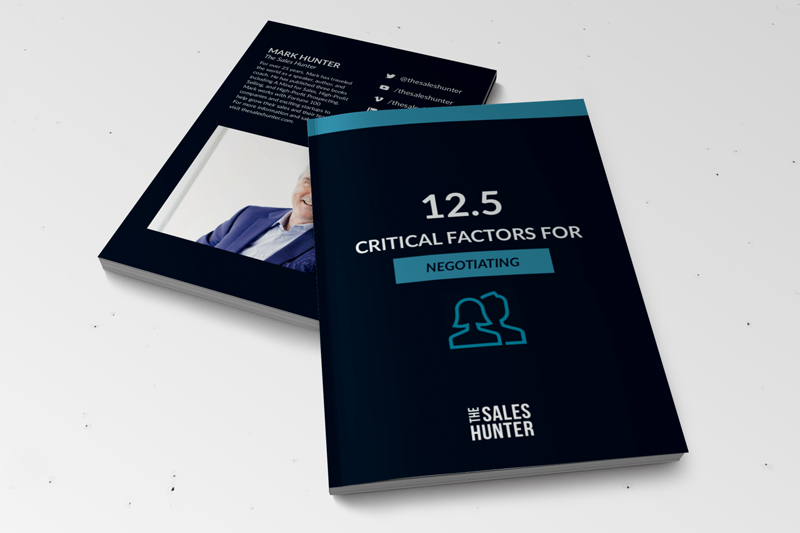 Nothing sends fear through a salesperson more than when a customer says something along the lines of, “We are going to take our business elsewhere if you insist on raising our price.”
Nothing sends fear through a salesperson more than when a customer says something along the lines of, “We are going to take our business elsewhere if you insist on raising our price.”
There are many variations of this and we’ve all heard them.
I can’t begin to tell you the number of times I’ve heard such statements from customers in my 30 years of selling.
Far more often than not, it’s a bluff, but when the customer says it, you can’t help but react.
Whether you’re selling a commodity or a custom designed/built component, the fear is the same.
Below are 10 questions you need to ask yourself.
Notice not one of the questions asks you to rethink the decision of taking a price increase. I believe once the decision is made to raise prices, it’s the sales force’s responsibility to go out and make it happen.
Over the years, I’ve written a number of articles on the subject of pricing, and one of my most popular sales training programs is on taking a price increase.
I am not attempting to provide you with every single question.
I’m merely sharing with you 10 questions that will equip you to better understand the situation when a customer pushes back regarding a price increase:
1. How do you know they have even started the process of finding an alternative source?
2. How much will it cost the customer to switch suppliers?
3. What is the status of the new supplier they say they will switch to?
4. How secure is the new price they say they can get?
5. Will the “lower” price they’re being offered only be for a short period of time?
6. What is the reason behind the customer saying they may quit buying from you?
7. How do you know what the customer is even saying is true?
8. How long would it take for them to make the switch to a new supplier?
9. How will others in the company respond if the decision is made to no longer buy from you?
10. What are you offering your customer that you know the “cheaper” competitor can’t offer?
Customers are quick to throw out comments about how a price is too high. Why shouldn’t they? Typically, when they do this, they get what they’re looking for – a better deal.
Unfortunately, the sales community has trained the buying community to ask for discounts, because the sales community lacks backbone to stand up and hold firm.
Key is remembering customers don’t buy anything. They only invest.
This means they will invest as much as it takes to achieve the rate of return or benefit they’re looking for. For most customers in B2B and B2C, one of the benefits is simplification and gaining time. If working with you is running smoothly for them, it’s doubtful they want to rock the boat.
This reason alone is why a customer asking for a discount is often only bluffing.
What they want is a price increase from you, despite what they might be saying. They really don’t want to switch, because switching requires time and work, and for most customers, this is simply greater frustration than would be offset by the savings they would achieve by switching to a different supplier.
The customer who is asking for a discount or refusing to accept your increase is simply trying to have it both ways. That is why your response has to be a strong “no.”
The level of confidence with which you speak when responding to this type of request is going to do more than nearly anything else you can do.
Beauty of the confidence you have is it comes from how you have answered the 10 questions outlined above. You don’t have to have a favorable response to each one to give you confidence. I argue all it takes is a favorable answer to at least a few or them.
What is really beautiful is many of these questions you already know the answer to if you have built any type of relationship with the customer.
Key is to not fold just because the customer is looking for a lower price.
Don’t be spooked and don’t go thinking the sky is falling.
Vast majority of time it’s not, and your confidence will help create not only more sales, but also sales at a higher price.
Copyright 2014, Mark Hunter “The Sales Hunter.” Sales Motivation Blog. Mark Hunter is the author of High-Profit Selling: Win the Sale Without Compromising on Price.













